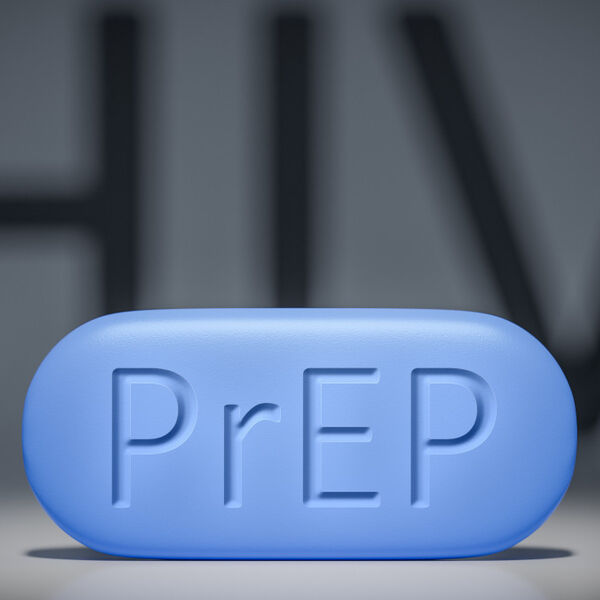
Expanding HIV Prevention Access: Updated Resources on Pharmacist-Initiated PrEP and PEP
NASTAD is pleased to announce the recent updates to two of our key resources: 1) a legislative tracker, Pharmacist-Initiated PrEP and PEP, and 2) an interactive map, Pharmacist Authority to Initiate PrEP and PEP and Engage in Collaborative Practice Agreements. These resources offer an in-depth look at the legal authority granted to pharmacists across the U.S. to initiate PrEP (pre-exposure prophylaxis) and PEP (post-exposure prophylaxis), as well as their ability to participate in collaborative practice agreements (CPAs) to enhance patient care.
Pharmacists are uniquely positioned to help bridge the gaps in access to HIV prevention, especially for populations who routinely face systemic barriers in traditional healthcare settings – including Black and Latinx folx, gay, bisexual, and other men who have sex with men (GBM), persons in rural areas, and serodiscordant couples. Many individuals in these groups face major obstacles when accessing healthcare such as stigma around HIV, systemic racism, healthcare provider bias, and limited healthcare infrastructure—factors that can make accessing HIV prevention medications like PrEP and PEP especially challenging. Diversifying the healthcare settings and provider types that offer HIV care could address some of these barriers.
Pharmacists, often much more accessible than traditional primary care providers, are a natural fit for expanding HIV prevention services, and increasing PrEP and PEP access through pharmacies can help dismantle the systemic barriers that have long limited HIV prevention efforts for vulnerable populations.
Key Updates: Legislative Tracker and Interactive Map
As part of our commitment to supporting pharmacists in this critical public health role, NASTAD regularly updates our interactive map and legislative tracker to reflect the latest policy changes. These updates ensure that health departments, pharmacies, and advocates have access to the most current information on the legal landscape surrounding pharmacists’ authority to initiate PrEP and PEP.
As of July 2024, 19 of the 53 jurisdictions analyzed (all 50 states, the District of Colombia, Puerto Rico, and the Virgin Islands) have now enacted legislation specifically addressing pharmacists’ authority to initiate PrEP and PEP. These updates reflect the most recent legislative efforts, providing a clear picture of which states have successfully expanded pharmacists' roles in HIV prevention—and where additional work is needed. The legislative tracker offers a detailed account of both successful and unsuccessful efforts to pass legislation authorizing pharmacist-initiated PrEP and PEP, while the interactive map presents an easy-to-navigate visual overview of enacted laws across the country. Both tools are designed to help stakeholders better understand the scope of pharmacist authority in their region and identify opportunities for policy advocacy and implementation.
The Importance of Expanding Pharmacist Authority
Pharmacists are increasingly seen as key partners in public health initiatives – especially in underserved communities where traditional healthcare access may be limited. Pharmacies are often more accessible than primary care clinics, especially in rural areas, as 90% of Americans actually live within 5 miles of a pharmacy. Pharmacies frequently provide services for extended hours, some up to 24 hours a day, and patients can receive care without an appointment, making them a more accessible option than primary care for many individuals. Furthermore, pharmacists can provide referrals and linkage to mainstream health care. Pharmacists are also trusted healthcare providers who can help patients navigate complex healthcare decisions, making them an ideal provider for HIV prevention services.
By granting pharmacists the necessary legal authority to initiate PrEP and PEP, pharmacies can significantly improve access to these medications and reduce new HIV transmissions.
The Role of Public Health
Public health departments are essential to the effective implementation and expansion of pharmacist-initiated PrEP and PEP services as they help bridge the gap between policy and community health outcomes. Health departments can validate the value and feasibility of pharmacy-based HIV prevention services – ensuring these efforts align with local needs and priorities. Additionally, health departments have the opportunity to play a central role in advising on specialized training that emphasizes the importance of pharmacists approaching HIV prevention care with a trauma-informed perspective. Furthermore, health departments can safeguard patients’ receival of a “warm-handoff” to ensure ongoing care by supporting the establishment of robust referral networks. Lastly, by promoting community awareness and demand, health departments can increase public interest in pharmacy-based services – while also encouraging pharmacists to implement HIV prevention care to meet the needs of underserved populations.
Looking Ahead
As the legal landscape of pharmacist-initiated PrEP and PEP continues to evolve, NASTAD remains committed to tracking state-level progress and advocating for policies that support expanded pharmacist authority.
To explore our updated legislative tracker and interactive map, and learn more about how pharmacists are playing a critical role in ending the HIV epidemic, visit:
- Interactive Map: Pharmacist Authority to Initiate PrEP and PEP and Engage in Collaborative Practice Agreements
- Legislative Tracker: Pharmacist-Initiated PrEP and PEP